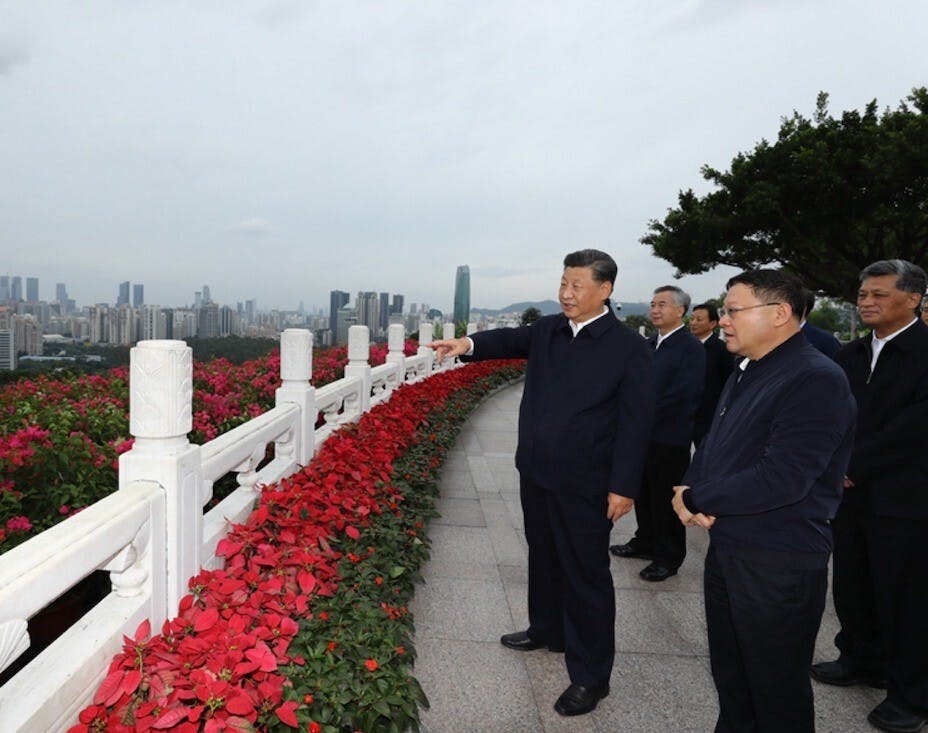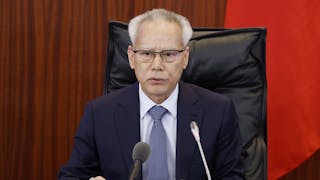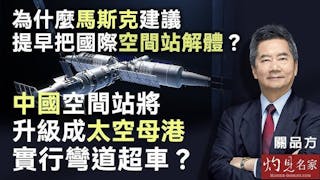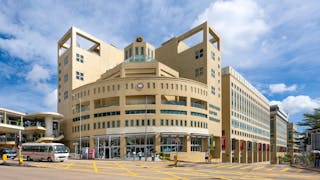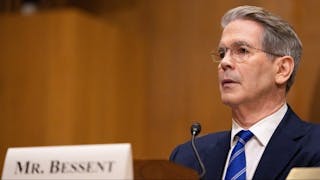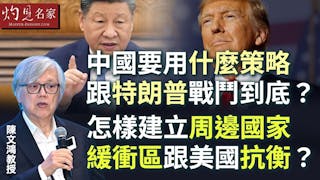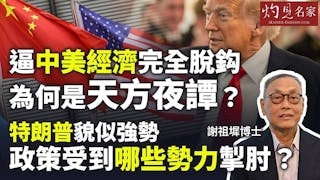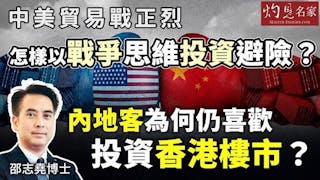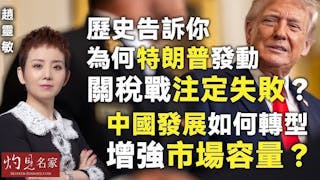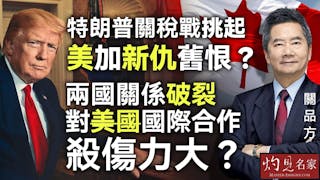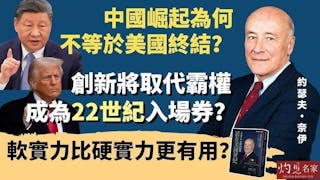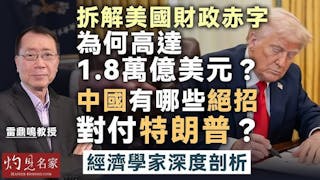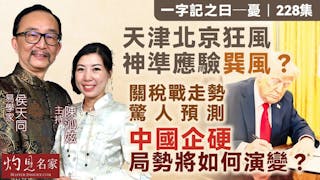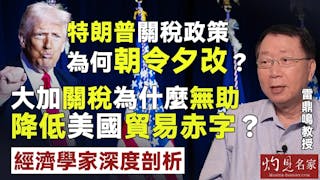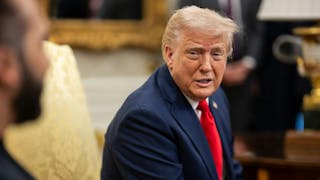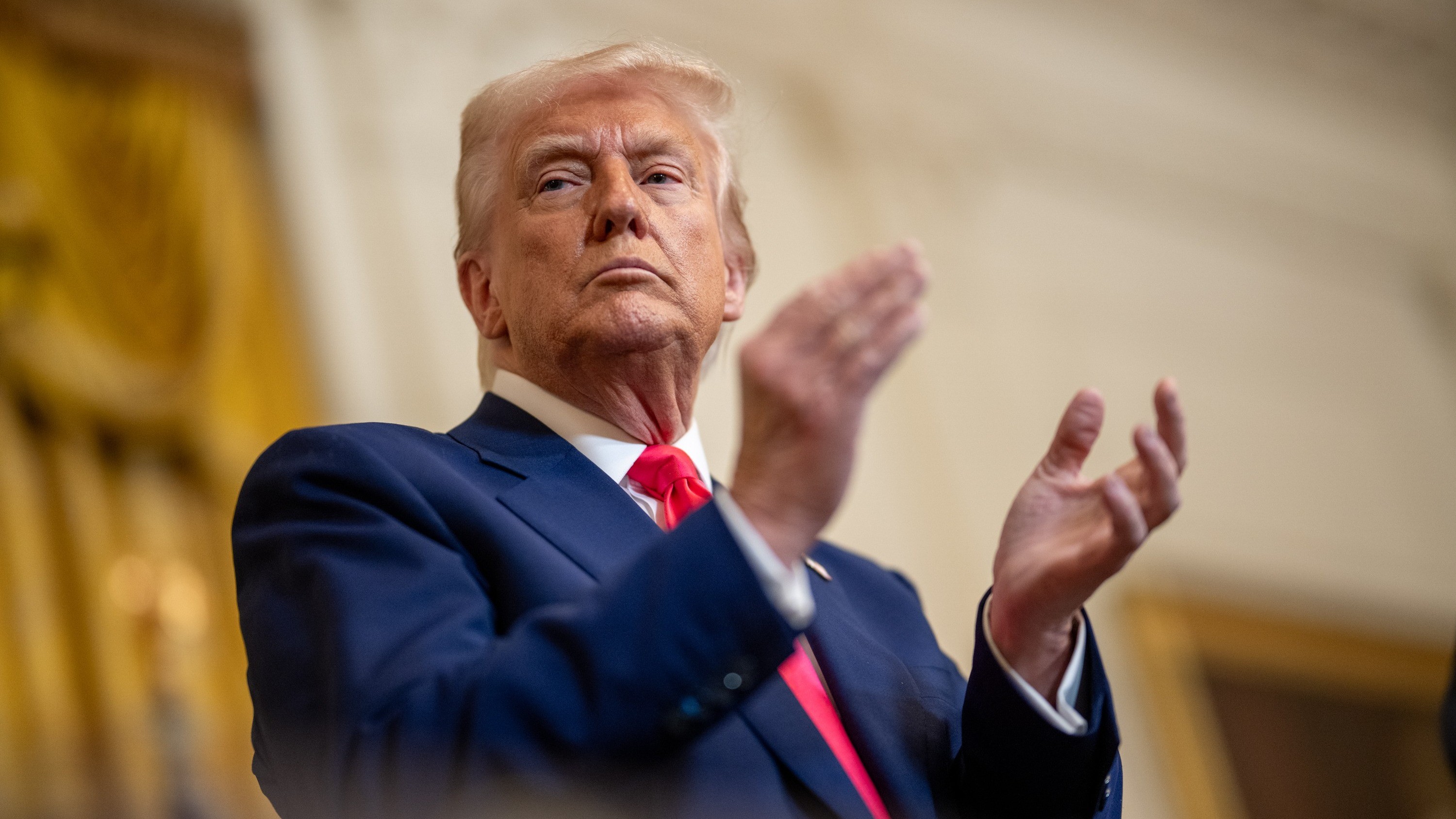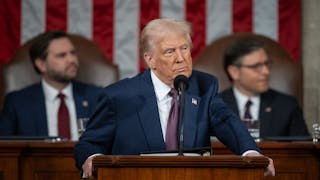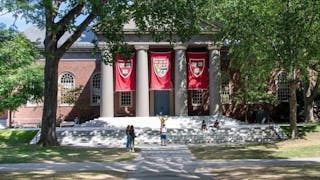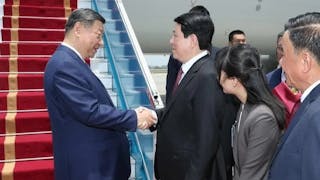最近,廣東省和廣州市的領導班子換屆,對兩地都具有重大的政治意義,顯示廣東省幹部接任廣州市領導,深圳、珠海輪換幹部接任廣東省和廣州市領導職務的格局。
穗市委書記張碩輔免職 林克慶接任
2021年12月3日,1965年出生於湖南的廣州市委書記張碩輔免職,由廣東省常務副省長林克慶接任。林克慶1966年出生於湖北,2008年至2013年在北京市大興區任區委書記,2019年至2021年任廣東省委副書記。
同日,廣州市市長溫國輝也由廣東省副省長郭永航接替,郭永航成為廣州市副市長、代市長。郭永航的任命得到廣州市人大常委會會議的正式批准,會議並接受了2016年至2021年底擔任廣州市市長的溫國輝辭職。
溫國輝1963年出生於廣東揭西縣,2013年任汕尾市委書記,2015年被派往廣東省政府工作,任廣東省副省長。
北方人主政南方省市 避免地方主義
廣州市作為副省級城市,在同一天發生了兩位最高領導人被撤換的事件,這一現象引起了大陸觀察人士的關注和政治敏感。
郭永航1965年出生於山東,1989年至2018年在深圳市政府工作,2018年任珠海市委書記。
林克慶和郭永航都是廣東省以外的「北方人」,他們被任命為廣州市的新領導人,可以理解為中央通常任命北方人領導廣東的做法──此舉鼓勵外省橫向調動,為省領導人積累更多的行政經驗,同時減少「地方山頭主義」,即依頼廣東出生的幹部領導廣東。
2010年萬慶良被任命為廣州市長,直到2014年因腐敗和濫用職權被免職,廣東出生官員的地方主義成為中央當局關注的問題。萬慶良在 2014 年 10 月被開除黨籍。他的腐敗醜聞給廣東出生的官員投下了陰影,可以說他們現在必須表現得更好,才能重新贏得中央的政治信任。
砍伐榕樹惹眾怒 恒大債務未管好
12月9日,香港傳媒報道,廣州市委書記張碩輔和市長溫國輝的突然換人,不僅是該市砍伐榕樹的政治原因,也可能是因為廣州負責的恒大集團債務處理,採取了有問題的方式。
2022年5月,廣州市前副市長林道平負責城市建設和環境保護工作,後調任陽江市委書記,後因另有安排而被免職。據報道,林道平被指控在廣州市砍伐了大批老榕樹,此舉引起了許多廣州市民的憤怒,並導致廣州市一些退休官員向中央投訴,引起北京最高領導層關注。
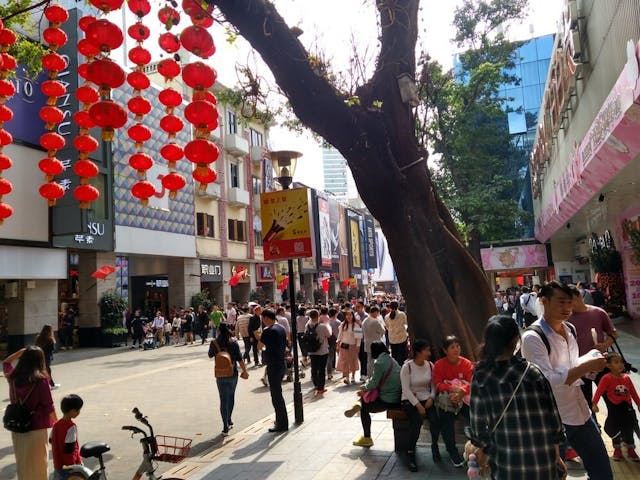
北京的最高領導層對廣州砍伐老榕樹的舉動感到震驚,對廣州市的治理方式感到不滿。 有傳言稱,習近平主席用12個字評價廣州市領導層:「肆無忌憚,肆意妄為,愚蠢至極」。
最終,廣州市10名官員在數千棵榕樹被砍伐後受到紀律處分、調職或降職。傳媒報道指,中央領導層高度重視可持續發展和環境保護。然而,廣州市以榕樹根部過度生長可能破壞道路和地下管道為由,砍伐許多老榕樹的舉動,顯然是疏忽和不當的,尤其是在中國將自己定位為全球環境保護者的政治敏感時期。
廣州市高層領導人被免職的另一個可能的原因,是恒大集團甚至一些廣州領導人財務管理不善的複雜原因。 恒大曾經是中國頂級房地產開發商,擁有超過1300個房地產項目,集團目前陷入債務危機。 2021年11月19日,香港恒生中國企業指數擬將中國恒大集團除名。廣東省政府隨即派工作組進入集團。 廣州市領導層在恒大危機中的作用不明,但有傳媒推測,廣州市領導層改組與恒大集團的債務危機有關,該集團過去的業務擴張,可能得益於廣州市的政策支持和眷顧。
馬興瑞掌新疆 王偉中任粵代省長
2021年12月25日,中央政府宣布,廣東省省長馬興瑞將出任新疆黨委書記,接替一直成功應對新疆社會穩定問題的陳全國。
2021年12月27日,廣東省人大常委會召開會議,任命現年59歲的深圳市委書記王偉中為廣東省代省長。王偉中於2017年被任命為深圳市委書記。 2021年習近平主席南下深圳,慶祝深圳經濟特區成立40周年時,對深圳取得的成就表示讚賞。
王偉中的任命,可以視為中央政府對他的工作,以及對深圳經濟快速發展作出的貢獻的認可。 事實上,自中央政府出台粵港澳大灣區發展規劃以來,深圳就定位為大灣區的經濟龍頭,在華南地區經濟快速融合和科技發展中明顯超越廣州市。
王偉中被視為中國政壇的一顆冉冉升起的新星。2014年,山西官場深陷腐敗醜聞,王偉中被中央政府派往山西。2014年9月任中共山西省委常委,2016年任太原市委書記。
最近任命馬興瑞為新疆維吾爾族自治區黨委書記,具有重大的政治意義,意味着廣東省的最高領導人,可以被提拔到政治上更重要的位置。 62歲的馬興瑞上任後不久就表示,他將按照中央的政策,保持新疆經濟長治久安和高質量發展。
馬興瑞的履歷令人印象深刻。 他出生於黑龍江省,在哈爾濱工業大學獲得力學博士學位。1988年加入中國共產黨,1996年任中國空間技術研究院副院長。2003年任鑫諾衛星通信有限公司董事長。十年後,他成為中國航天科技集團公司總經理。2015年至2016年在深圳任市委書記,2017年1月升任廣東省省長。他在空間技術、衛星通訊和經濟發展方面的專業知識和知識,意味着在新疆的新職位,在保持當地社會政治和經濟穩定的同時,或會有新的使命。
習仲勛大力推動 廣東省經濟發展
從歷史上看,廣東的領導職位可能具有重要的政治意義。習近平主席的父親習仲勳,1978年至1980年任廣東省委書記,1981年3月調任中央書記處工作。1993年習仲勳退休後,經常到深圳。習仲勳為廣東經濟發展作出了巨大貢獻;1978年,他遊說中央政府給予廣東更大的經濟自主權力以開放經濟。在習仲勳的推動下,已故中共領導人鄧小平 1979 年允許廣東建立經濟特區,從而為廣東和後來的深圳快速成功地發展打開了大門。
鑑於習仲勳大力推動廣東省的經濟發展,習近平主席自然會密切關注廣東省的發展,包括廣州和深圳這兩個城市的發展。習近平2012 年和 2020 年南下巡視廣東證明,他仍然對廣東的社會和經濟發展保持着濃厚的興趣。
綜合以上分析,最近廣東和廣州市的官場人事變動,不僅體現了廣東省官員接任廣州領導職務的轉變,同時體現了深圳和珠海兩地官員領導廣東省和廣州市的轉變。廣東出生的官員似乎正受到關注,因為中央對地方主義的擔憂,可能正是粵省市領導層改組的因素之一,尤其是在廣州發生萬慶良腐敗醜聞之後。
造成近期該市領導層改組的其他因素,包括廣州官員對榕樹的管理不當,以及該市對恒大集團的財務監管不力。另一方面,馬興瑞從廣東省領導層提拔到新疆,表明廣東省領導如果表現出色,能夠在其他省市接替重要的政治職位。
Leadership Change in Guangzhou and Guangdong: Political and Personnel Implications
The recent leadership reshuffle in the Guangzhou city and the Guangdong province has significant political implications for both places, indicating a pattern of transferring officials from the Guangdong province to assume the leadership of Guangzhou and rotating cadres from Shenzhen and Zhuhai to take over the leadership position in Guangzhou and Guangdong.
On December 3rd, 2021, Guangzhou city’s party secretary Zhang Shuofu, who had been born in Hunan in 1965, was replaced by an executive vice governor of the Guangdong province, Lin Keqing. Lin Keqing was born in Hubei in 1966 and worked in Beijing’s Daxing district as a party secretary from 2008 to 2013. He became the deputy party secretary of the Guangdong province from 2019 to 2021.
On the same day, Guangzhou city’s mayor Wen Guohui was also replaced by Guo Yonghang, who was the Guangdong province’s deputy governor and who became Guangzhou city’s deputy mayor and acting mayor. Guo’s appointment was formally approved by a meeting of the Standing Committee of the Guangzhou Municipal People’s Congress, which accepted the resignation of Wen Guohui who had served as the mayor of the Guangzhou city from 2016 to late 2021.
Wen had been born in Jiexi County, Guangdong, in 1963 and worked in Shanwei city as party secretary in 2013 before he was sent to work in Guangdong provincial government in 2015.
As a vice-provincial city, Guangzhou witnessed two top leaders being replaced on the same day – a phenomenon that aroused the immediate concern and political sensitivity of mainland observers.
Guo Yonghang was born in Shandong in 1965 and worked in the Shenzhen municipal government from 1989 to 2018, when he was then appointed as the Zhuhai city’s party secretary.
Both Lin Keping and Guo Yonghang were northerners born outside Guangdong. Their appointments as the Guangzhou city’s new leaders can be interpreted as a sign that the central authorities usually appoint northerners to lead Guangdong – a move that encourages lateral transfer from other provinces to accumulate more administrative experiences for provincial leaders while minimizing “local kingdomism” by relying on Guangdong-born cadres to lead Guangdong.
The regionalism of Guangdong-born officials became a concern of the central authorities when Wan Qingliang was appointed as the Guangzhou mayor in 2010 until 2014 when he was stripped of his position due to corruption and abuse of power. Wan was expelled from the party in October 2014. His corruption scandal cast a shadow on the Guangdong-born officials, who arguably must now behave well and perform much better to re-earn the political trust of the central authorities in Beijing.
On December 9th, the mass media in Hong Kong reported that the sudden reshuffle of Zhang Shuofu and Wen Guohui in Guangzhou city was attributable to not only the politics of removing Banyan trees (rongshu) in the city, but also perhaps the problematic way in which the Evergrande Group’s financial management was handled by Guangzhou.
In May 2022, a former deputy mayor of Guangzhou city, Lin Daoping oversaw urban construction and environmental protection, but he was then transferred to be the party secretary of Yangjiang city and later dismissed on the grounds that another arrangement was made. It was reported that Lin had been held responsible for cutting a large batch of Bayan trees in Guangzhou city – a move that aroused the anger of many citizens in the city and that led to the complaints of a few retired Guangzhou officials to the central government in Beijing.
Alarmed by the Guangzhou move to cut Bayan trees, the top leaders in Beijing were unhappy with the ways in which Guangzhou city was governed. Rumors were rife that the President Xi Jinping commented on the Guangzhou leadership with 12 words in Chinese: “unscrupulous, reckless, and extremely foolish.”
Eventually, ten officials in the Guangzhou city were disciplined, transferred or demoted after thousands of Banyan trees were cut down. Media reports said that the central leadership has been attaching great importance to sustainable development and environmental protections. Yet, the Guangzhou city’s move of cutting many Banyan trees on the grounds that the trees’ overgrown roots might sabotage roads and underground pipes was clearly negligent and improper, especially at a politically sensitive time when China has been positioning itself as a global environmental protector.
Another possible reason for the removal of the top Guangzhou leaders was the complexity of financial mismanagement on the part of Evergrande and perhaps some Guangzhou leaders. Evergrande was once a top property developer in China with more than 1,300 real estate projects. It has been enmeshed in financial crisis. On November 19th, 2021, the Hong Kong Hang Seng China Enterprises intended to delist the Group. Immediately the Guangdong provincial government sent a work team into the Group. The role of the Guangzhou leadership in the Evergrande crisis was unknown, but the media speculated that the Guangzhou leadership reshuffle was attributable to the financial crisis of the Evergrande Group, whose business expansion in the past might be due to the political support and patronage of Guangzhou.
On December 25, 2021, the central government announced that Ma Xingrui, the Governor of Guangdong province, would become the new party secretary of Xinjiang and he would replace Chen Quanguo, who had been dealing with Xinjiang’s social stability successfully.
On December 27, 2021, the Standing Committee of the Guangdong National People’s Congress met and appointed Shenzhen city’s party secretary Wang Weizhong, who is 59 years old, to be the acting Governor of the Guangdong province. Wang was appointed as the Shenzhen party secretary in 2017. When President Xi Jinping visited Shenzhen in 2021 to mark the 40thanniversary of Shenzhen’s development as China’s first special economic zone, he praised the achievements of Shenzhen.
Wang’s appointment could be seen as a move in which the central government recognized his work and contribution to Shenzhen’s rapid and impressive economic development. In fact, since the Greater Bay Area (GBA) plan was published by the central government, Shenzhen has been positioned as the economic powerhouse of the GBA and obviously overtaking the role of Guangzhou city in the rapid economic integration and technological development in Southern China.
Wang has been seen as a rising star in Chinese politics. In 2014, he was sent by the central government to Shanxi amid corruption scandals in the province. Wang became a member of the Shanxi provincial party committee in September 2014 and the party secretary of Taiyuan city in 2016.
The recent appointment of Ma Xingrui as the new party secretary of the Xinjiang Uygur autonomous region was politically significant. It meant that a top leader of the Guangdong province can be promoted to assume an even more politically important position. Soon after his new appointment to Xinjiang, the 62-year-old Ma said that he would follow the central government’s policy of maintaining the long-term stability and high-quality economic development of Xinjiang.
Ma’s track record was impressive. Born in Heilongjiang province, Ma earned a doctorate in mechanics from the Harbin Institute of Technology. He joined the Communist Party of China (CPC) in 1988 and became a vice-dean in the Chinese Academy of Space Technology in 1996. In 2003, Ma was appointed the chair of the Sino Satellite Communications Company. Ten years later he became the director of the China National Space Administration. He worked in Shenzhen as a party secretary from 2015 to 2016, and he was promoted as Guangdong’s governor in January 2017. His expertise and knowledge in space technology, satellite communications and economic development mean that the new position in Xinjiang will perhaps have a new mission while maintaining the socio-political and economic stability there.
Historically speaking, Guangdong’s leadership positions could be politically significant. President Xi Jinping’s father, Xi Zhongxun, had been the Guangdong province’s party secretary from 1978 to 1980 before he was appointed to work in the Central Secretariat in March 1981. After his retirement in 1993, Xi Zhongxun often resided in Shenzhen. Xi Zhongxun contributed immensely to Guangdong’s economic development; in 1978 he lobbied the central government for greater economic authority to be given to Guangdong to open its economy. In support of Xu, the late Chinese leader Deng Xiaoping in 1979 allowed Guangdong to establish special economic zones, thereby opening the door for Guangdong and later Shenzhen to develop rapidly and successfully.
As his father had developed great interest in the economic development of Guangdong province, President Xi Jinping naturally pays close attention to the development of the province, including the cities of Guangzhou and Shenzhen. President Xi’s southern visits to Guangdong in 2012 and 2020 proved that he remains deeply interested in the province’s socio-economic development.
In conclusion, the most recent leadership changes in Guangzhou and Guangdong have illustrated not only the transfer of Guangdong provincial officials to take over the leadership positions in Guangzhou, but also the shift of Shenzhen and Zhuhai officials to lead both Guangzhou and Guangdong. It seems that the Guangdong-born officials are under observations as the central concern about regionalism could be one of the factors shaping leadership reshuffle, especially after the Wan Qingliang corruption scandal in Guangzhou. Other factors shaping the recent leadership reshuffle in Guangzhou include the mismanagement of Bayan trees on the part of Guangzhou officials and perhaps the city’s financial supervision of the Evergrande Group. On the other hand, the promotion of Ma Xingrui from the Guangdong leadership to Xinjiang shows that Guangdong’s political leaders, if performing well and impressively, can be a step further to take over politically important positions in other provinces and cities.
原刊於澳門新聞通訊社(MNA)網站,本社獲作者授權轉載。



